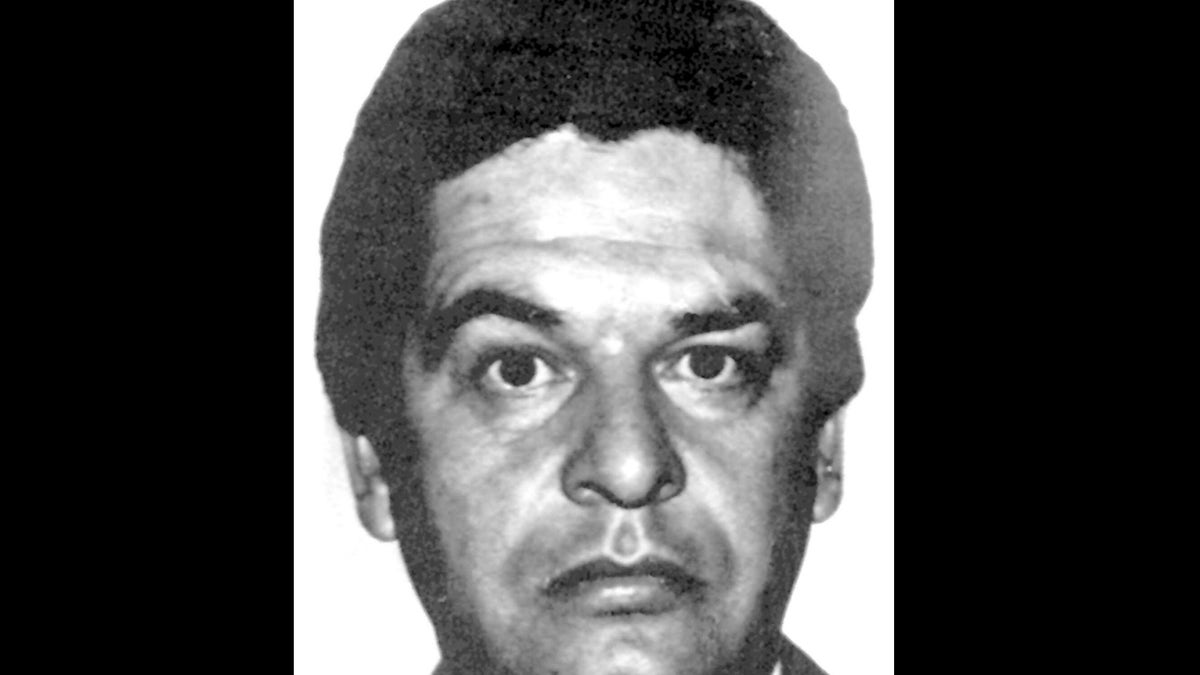
Enrique "Kiki" Camarena, the DEA agent murdered in Mexico in 1985. (ap)
Freedom is imminent for a second member of the trio of Mexican drug kingpins responsible for the 1985 slaying of a Drug Enforcement Administration agent, the defense attorneys claim.
Caro Quintero walked free Friday after a federal court overturned his 40-year sentence in agent Enrique "Kiki" Camarena's kidnapping, torture and murder. The three-judge appeals court in the western state of Jalisco ordered Caro Quintero's immediate release on procedural grounds after 28 years behind bars, saying he should have originally been prosecuted in state instead of federal court.
Also imprisoned in the Camarena case are Ernesto Fonseca Carrillo and Miguel Angel Felix Gallardo, two of the founding fathers of modern Mexican drug trafficking, whose cartel based in the northwestern state of Sinaloa later split into some of Mexico's largest drug organizations.
Fonseca Carrillo's attorney, Jose Luis Guizar, said Saturday his team had filed an appeal based on the same procedural grounds used by Caro Quintero, and expected him to be freed within 15 days by a different court in Jalisco.
"The appeal is about to be resolved. We believe that the judges will stick to the law," Guizar said. "Fonseca Carrillo should already be on the street. He should be at home. At its base, the issue is the same as Rafael's. "
He said he had not spoken to Felix Gallardo's attorneys about their expectations for that case. Mexican officials did not respond to calls seeking comment Saturday.
Camarena's murder escalated tensions between Mexico and the U.S. to perhaps their highest level in recent decades, with the Reagan administration nearly closing the border to exert pressure on a government with deep ties to the drug lords whose cartel operated with near impunity throughout Mexico.
The U.S. Department of Justice said Friday that it found the Mexican court's decision to free Caro Quintero "deeply troubling," but former DEA agents said they were pessimistic that the Obama administration would bring similar pressure to bear.
Nearly 20 years after the enactment of the North American Free Trade Agreement, U.S.-Mexico trade exceeds $1 billion a day. The two countries have worked closely against drug cartels over the last seven years, with the U.S. sending billions in equipment and training in exchange for wide access to Mexican law-enforcement agencies and intelligence.
The U.S. said little last year after Mexican federal police opened fire on a U.S. embassy vehicle, wounding two CIA officers in one of the most serious attacks on U.S. personnel since the Camarena slaying. Twelve police officers were detained in the case but there is no public evidence that the U.S. or Mexico pursued suspicions that the shooting was a deliberate attack by corrupt police working on behalf of organized crime.
"I'm sure there's going to be a lot of complaints about it but do we have a Department of Justice that's going to stand up for this right now? I don't think so," said Edward Heath, who ran the DEA's Mexico office during the Camarena killing. "Everybody's happy, businesswise. Trade is fine, everybody is content."
President Enrique Pena Nieto, who took office in December, has been restricting U.S. access as part of a broader shift in Mexican law-enforcement strategy from taking down cartel chiefs to reducing daily violence, particularly extortion, kidnapping and homicide. That shift has raised doubts in Washington about Mexico's ongoing commitment to fighting drug trafficking, doubts that grew stronger Saturday after Caro Quintero marked his second full day as a free man, with no public sign of his whereabouts.
The U.S. alleged as recently as June that Caro Quintero continued to run an extensive drug ring from behind bars, working with the Sinaloa cartel to move drugs and launder the proceeds through a string of front businesses.
Congressman Henry Cuellar, a Texas Democrat who closely follows Mexican politics, said Pena Nieto's government appeared to have been caught off guard by the decision to free Caro Quintero, but the capo's liberation was nonetheless a blow to relations with Washington.
"We've been asking Mexico to follow the rule of law and I don't know if this exactly the rule of law that they're following," he said. "There should have been some sort of heads up notice that this was going to happen.
"I hope this is not a foreshadowing of what might be coming in from this administration," Cuellar said. "I don't think so but the appearance doesn't look very good right now for U.S.-Mexico relations."
Alejandro Hope, a security analyst and former member of Mexico's domestic intelligence service, said he had met Friday with members of the Mexico's Interior Department, which oversees most law-enforcement issues.
"They claimed to have been surprised, to have been blindsided by the judicial decision," he said.
Either way, Caro Quintero's release pales in importance next to the detention last month of Miguel Angel Trevino Morales, head of the ruthless Zetas cartel, Hope said. The arrest of the man known as Z-40 was publicly praised by President Barack Obama as a sign of Mexico's seriousness about fighting drug cartels.
"Caro Quintero is the past," Hope said. "Z-40 was the clear and present danger."
The Wednesday ruling for Caro Quintero remained secret for two days, the Department of Justice said, with the U.S. learning about it Friday morning about the same time as the news media, hours after Caro Quintero left prison.
"The retired agents that I have spoken to are extremely upset," said Joe Gutensohn, president of the U.S. Association of Former Federal Narcotics Agents. "They consider this just another slap in the face for our efforts to stem the drug trade in Mexico."
Mexico's attorney-general said the Jalisco court had "completely ignored" Supreme Court precedent in dismissing the case instead of referring it back to the state courts. Attorney-General Jesus Murillo Karam said he would get involved in the case but offered no specifics.
Based on reporting by The Associated Press.
Follow us on twitter.com/foxnewslatino
Like us at facebook.com/foxnewslatino







































